To Be a Mum; Miscarriage, Endometriosis and IVF with Jillian
- Alison Turner
- Apr 1, 2023
- 16 min read
Updated: Jun 22, 2023
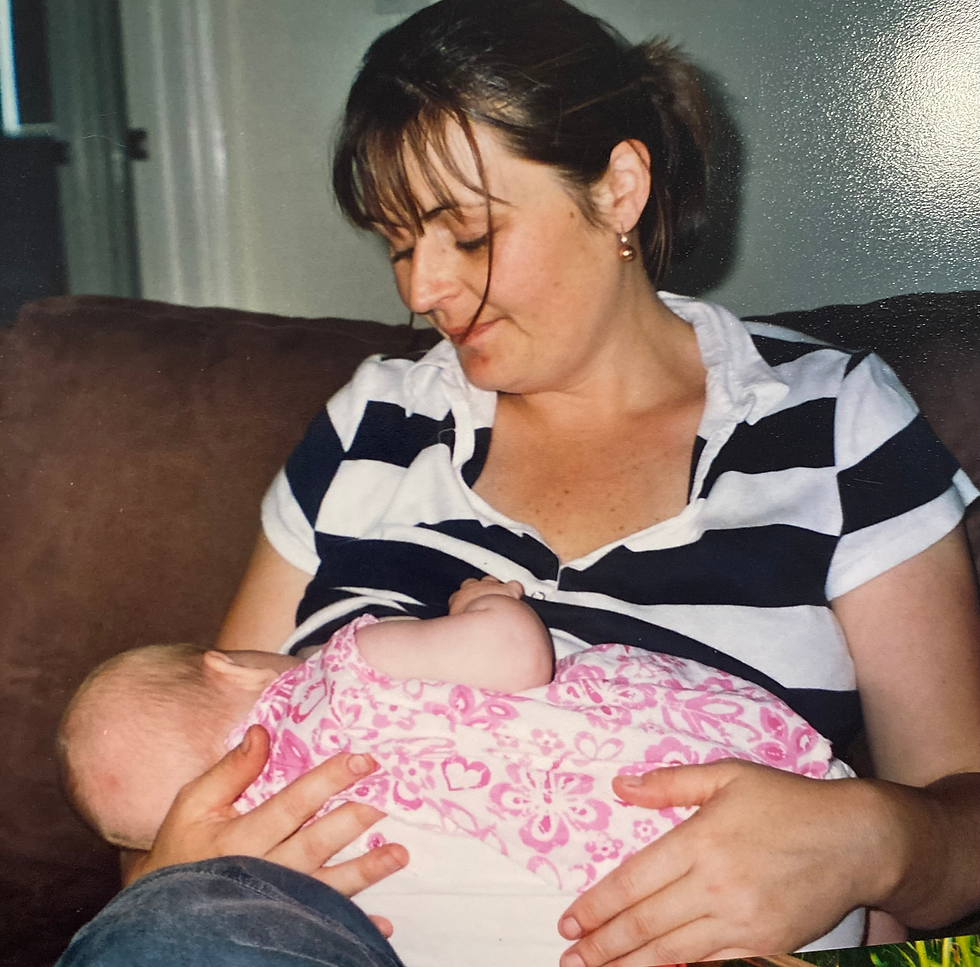
Motherhood is a tough gig. For some people, that difficulty begins years before conception.
Like 1 in 9 Australian women, Jill has endometriosis. A disease that starts in the uterus, causing bowel irregularities, severe ovary pain, and fertility issues. The latter producing, in Jill’s opinion, the most pain of all.
Having come out the other end of a long fertility battle, Jill has used this interview to discuss the otherwise avoided topics of womanhood;
- How can you support someone having experienced a miscarriage?
- What signs are there for endometriosis in yourself?
- Where does IVF fit in to your life?
A remarkable women who has experienced more hardships than meets the eye, the way Jill lives is a powerful, hopeful story.
Miscarriage
It’s a tough word to even type. Twenty five years onwards, Jill feels having her two daughters has helped her get to a place of acceptance, but the pain is raw.
When asked if she can remember how the first miscarriage felt, so quickly and surely Jill responds; ‘yeah. That was heartbreaking.’
I believe there are two ways the word ‘yeah’ can be said;
as a nonchalant response- ‘yeah, we can have fish and chips for tea’-,
and as a deep, reminiscent response, when somebody has so much to say and ‘yes’ cuts the breath too short. Jill uses it the second way.
Her demeanour changes as the emotions resurface. The usual, busy jittering stops and is replaced by stillness. Continuing the recount of heartbreak;
‘It’s an inner loss, that real inner core trauma. That roaring sort of crying moment.’

The setting is a Ballarat bridle store. The year is 2000. An excited soon-to-be newlywed and her sister make the day trip over for final wedding fittings.
Having found the person she was sure she wanted to have kids with, Jill was bursting to walk down the aisle and begin the next chapter of her life.
The dress, a modest, white, broidery design was sized to fit like a glove- except this fitting, it didn’t. The frontal fabric was prodding and the seaming stretching. ‘My boobs are bigger’, which Jill quickly understood to mean ‘oh my god, I’m pregnant!’
Marriage, motherhood, a family. Jill’s life was piecing together so perfectly, with only one concern on her mind; ‘Ooh, I won’t be able to have champagne at my wedding’.

And so, on a warm Spring day at the Port Fairy Yacht Club, those steps were taken down the aisle.
The photos show a smiling Jill, plastic flowers in her hair (2000’s core), beaded pearls caressing her neck, and a bitter, half drunk glass of champagne in hand. ‘Aching, heavily’.
‘I had miscarried a week before my wedding, and was still bleeding on the day’.
‘I had to go to my wedding with a pad. You don’t do that.’ Nobody should.
Taking a moment to reflect, Jill notes; ’That was hard, that was really hard’. ‘It was sorrow, but also loss’.
To make things even harder, Jill went through this miscarriage alone.
‘I didn’t tell people until after my wedding’. Not wanting to 'ruin' the tone of her special day, Jill downplayed the trauma she was experiencing.
‘Well you know me, I’m pretty tough and cool’. Recreating the way she told her family, Jill recites in a peppy tone; ‘oh well, it’ll be right, just back on the pony!’, pausing to add ‘deep down, I was aching’.
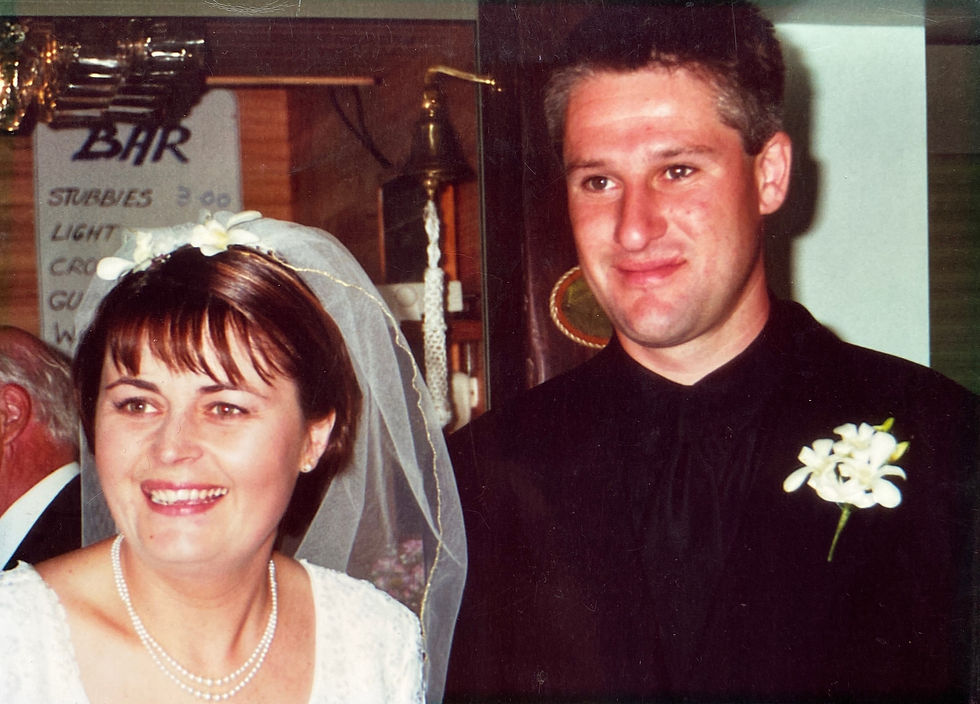
In these moments, what does the person suffering need?
‘Connection with partner’, Jill answers, ‘because you just want that closeness, that support’.
Despite the eventual breakdown of her marriage, Jill commends the support she received during these times.
‘I remember just howling, thinking ‘how the fuck’. (My ex-husband) was so good, he just held me tight and let me get it out’.
‘I was so devastated that night’. ‘You’ve got to have that mourning. (Miscarriage) is a heavy thing and I think (mourning) gets the stress and the tension out a bit’.
Jill initially recounts having three miscarriages in her life, but our conversation uncovers suppressed memories and that number increases to five. Despite blurry timelines, this hardship is one Jill knows all too well.
After two pregnancies that resulted in losses, Jill advocated strongly to her local GP; ’I want to see the fertility specialist’.
‘I got pregnant whilst I was with Dr Wood (the IVF specialist), I had a bit of a bleed so I called him’. ‘He said; ‘stay in bed for as long as you can’. He asked me ‘how big was the bleed?’ and then told me ‘you’ve had a loss’.
‘It was such a deep loss, but it was also the loss of maybe not ever being able to experience being a mother, more so than the loss of the physical side of miscarriages’.
‘I’m a thinker, I’m a medical science girl’. The loss of each foetus wasn’t what caused Jill so much pain, ‘because I just thought all that wasn’t meant to be’, it was mourning the loss of ‘I may never have my children’. The loss of a future so anticipated. A ‘constant fear’.

One particular miscarriage caused the most heartache for Jill.
After a positive pregnancy test, a gestational sac had developed without an embryo, known as a ‘blighted ovum’. Essentially, a sack of 'nothing', exampled in the accompanying ultrasound.
‘The sperm connected to the egg, but it didn’t form. It just became a sack of water, but it was growing, it had connected to the lining.’
Jill watched her stomach grow for twelve weeks. She prepared herself for the baby that she could feel inside of her, ‘but those blighted ovums, they never continue’.
"Here I am this whole time thinking ‘ooh, three months pregnant'", Jill feigns in excitement. ‘Then I had the loss. I think that one was the hardest because I had gotten so far in the time’.
Twenty five years onwards from her first miscarriage, Jill rarely finds herself wondering about the babies that could have been, ‘possibly because I’ve got my girls’.
I ask if Jill feels 'a hole' left by any of the miscarriages, she pauses for a few moments and answers in a soft voice; ‘there is with one’.
‘I would have been due June the 10th. I don’t remember the other miscarriage dates, but I do remember that one and I always think ‘oh, that child would have been this old now’.’ ‘They would be 24 this year.’
‘I always try to think of people who are worse off. I can talk about this because I am so fortunate to have two daughters.’
‘So fortunate.’ Jill reiterates.
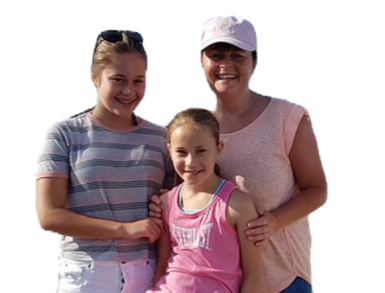
Endometriosis
Like most girls, when Jill was eleven her monthly period began.

‘It was always heavy’, she recounts, telling stories of ruining mattresses and countless sets of pyjamas from the blood.
The pain in her abdomen would be so strong that Jill would often ‘roll around in
the cold orchid’ at wintertime to numb the intensity.
What might sound alarming to us, was just summarised by local doctors at the time as ‘really bad periods’, no further diagnoses. ‘I was putting up with all of these problematic periods and constant bleeding’.
When Jill was thirteen she was put on a birth control pill, which assisted to regulate the blood loss, but the pain continued; ‘I just sort of managed it with Panadol'.
As the years passed, Jill continued self advocating at doctors appointments; ‘I would present there and say that I have severe pain, I have diarrhoea all the time. I used to tell them how it would hurt when I was having sex sometimes, that you can feel the pain internally.’
Instead of looking deeper into what was happening, Jill felt unheard when the doctors would respond with ‘you’ll be right’, ‘continue with the pill, and you’ll be right’.
Countless doctors, miscarriages and twenty years of suffering, it wouldn’t be until Jill was well into adulthood that she would finally receive an answer; endometriosis.
So what exactly does that mean?
In the straight-talking words of Jill; ‘When you’re preparing to menstruate, some of the blood comes back up around the uterus, shatters and sort of splinters off. Then it lands on your bladder or on your bowel, or on your ovaries. This forms the pain and stops ovulation.’
Or in other words, it occurs when endometrial cells escape the uterus and grow elsewhere.
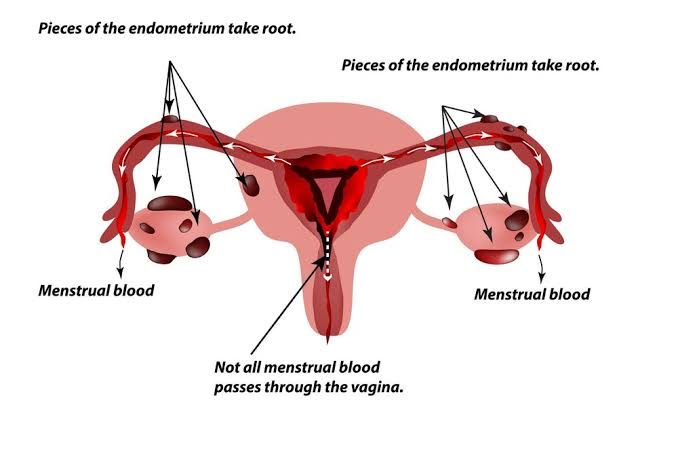
Are certain people more prone to the disease?
According to Jill; ‘I think it’s just pot luck with women to be quite honest. Some get it, some don’t’.
Because the symptoms of endometriosis are so similar to the symptoms of menstrual cycles, ‘a lot of women would suffer with it’ without registering that what they are experiencing is not standard.
So what about a cure?
There are now surgeries available, but for Jill, that cure came in the six pound form of my best friend Audrey.
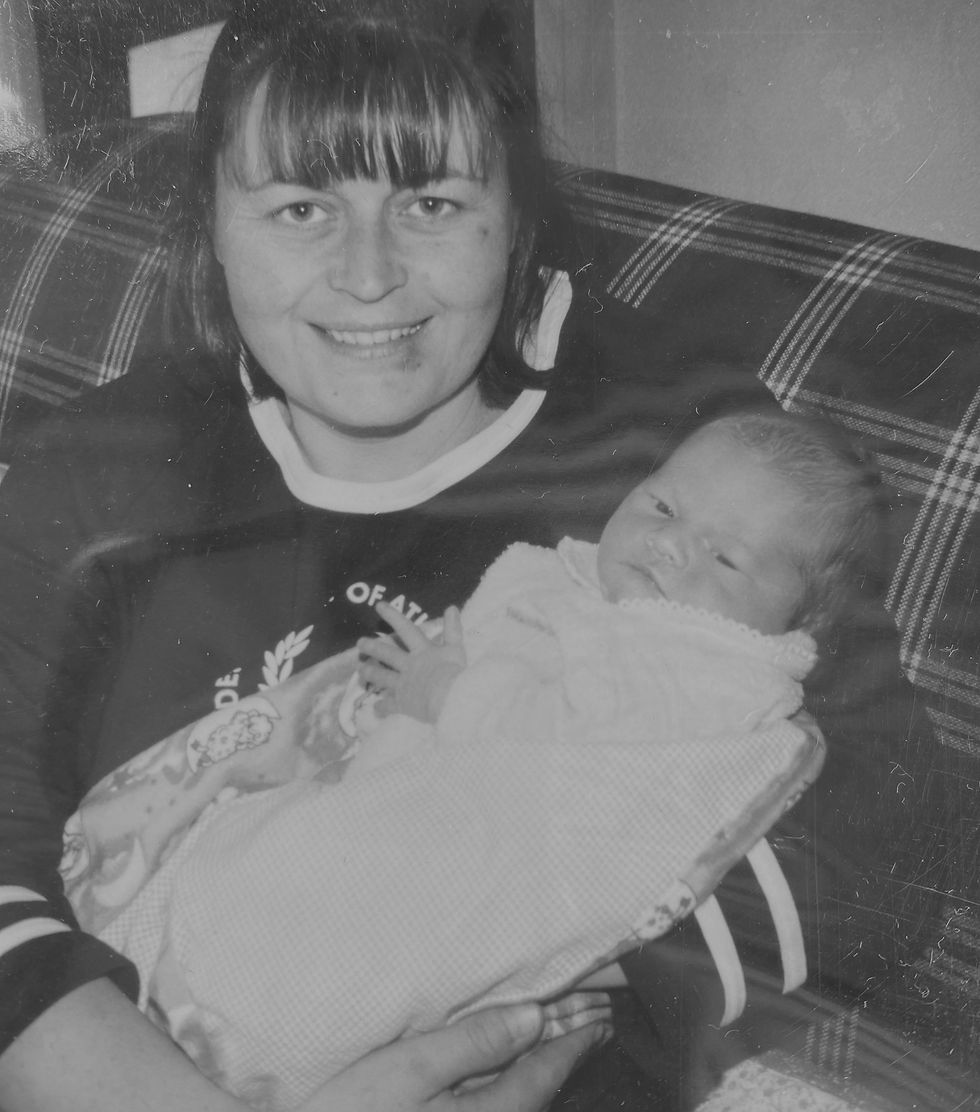
‘They do say the best thing to cure it is pregnancy, and that’s what I’d heard’, ‘it all pretty much stopped once I had babies’. ‘I never had the pain, my periods were a lot easier’, ‘maybe it was a big clean out? I don’t know’.
Endometriosis can be remedied by childbirth, yet the disease lessens the chance of carrying a baby to full term. How cruel that both the cure and the affect contradict. For Jill, a diagnosis was a small step forward on what was to be a long journey for motherhood. The next step; ‘a scrape and clean’ of the uterus.
Fertility

Becoming a mum had been a thought of Jill’s since she was little- not so much a ‘dream’, but more of an expectation; ‘I always knew I’d have children’.
So when the diagnosis of endometriosis led to the prospect of infertility, a large spanner was thrown into the works.
‘I wanted to have a family.’ Jill stopped taking her birth control pill and began planning for a baby with her partner, but to no avail; ‘of course, it’s not happening’.
‘I was really worried’, Jill recounts, ‘I’m thirty, I’ve been trying for a year, I can’t leave it any longer. I want to have kids’. ‘I wanted to be the young mum, the cool mum’.
Due to the ticking time bomb guised as age, ‘we both looked into our fertility’.
‘That’s really important for women,’ Jill notes, ‘if you think you aren’t going to have a baby until you’re in your thirties, then maybe go and get things checked out earlier’, ‘make sure everything’s running well’.
A quick and easy way for females to check their fertility is by asking their GP for an AMH test. A simple blood test can detect possible concerns by checking your egg count.
Alas, just like her endometriosis - which at this point, was still undiagnosed, the local doctors weren’t taking her fertility concerns seriously either.
‘(The doctor) wasn’t acting on it for me, he really wasn’t.’ ‘‘He said, ‘you’ll be right, just keep trying’”, ‘he was a bit blasé’. Even after Jill’s second miscarriage, the appointments lacked action; ‘you’ve proven you can get pregnant, just see what happens’.
A whisper from a nurse set Jill on a more proactive path; “She said ‘don’t fuck with the doctors here Jill, go down and see professor Carl Wood. It’ll cost you, but go down and see him’”.
Speaking with all that she knows now, Jill has advice for other peoples struggling with fertility;
’Don’t muck with any of it if your gut tells you that your doctor’s not doing enough. Go and get another opinion, and then get another. Talk to people. Trust your gut, if you think it’s not right and the advice you’re getting is wrong, go elsewhere. And if you can afford it, go the best’.
After another six months of little action, Jill began the transition.
"I said to the doctors; 'no, someone’s told me to go see Dr Carl Wood in Melbourne'". With admiration in her tone, Jill adds; ‘he was the actual founder of IVF, you need to Google him’. So Google I shall. . .
Dr Carl Wood- ‘The Father of IVF’
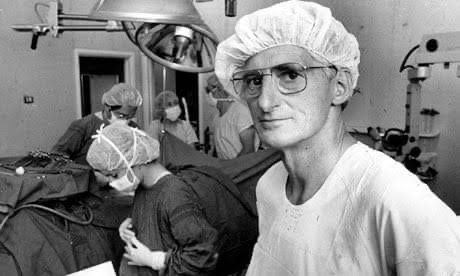
Edwin Carlyle Wood, born in 1929, was an Australian gynaecologist.
Wood led the development of IVF in the 70’s, and his team created the world’s first IVF egg in 1973- what better hands could you be in!
Dubbed as ‘the most important development’, Wood improved egg maturation and collection. Clients of Dr Wood, including Jill, were having hormonal and pharmaceutical injections daily to stimulate their ovaries. This discovery graduated the reliability of IVF from ‘experimental’ to ‘clinical’.
In 1998, Wood established the ECCA; Endometriosis Care Clinic of Australia, three years before diagnosing Jill himself.
The author of twenty-three books and 400 medical papers, Dr Wood’s academic resume is spectacular, but it’s his bed side manner that reigns most significant for Jill; ’He was, I have to say, the nicest man ever’.
‘When I went to see him I was thirty-one, and he was seventy-two.’ That ticking time bomb of age was only booming louder for Jill. ‘He was at the cusp of retirement’.
Situated in a private hospital, Jill and her then-husband saved hard to get an appointment. Once there, Wood discovered that Jill was unable to ovulate the usual amount.
Jill had previously undergone two surgeries, ‘laparoscopies, because of the pain’ with the outcome from local doctors being ‘cysts’. Wood’s team had a different opinion though; “they got in there, then came back and said ‘you didn’t have cysts, you’ve actually got endometriosis’”.
“(Dr Wood) diagnosed me straight away and said ‘nope, we can’t muck around with this type of thing’”. Finally, Jill was feeling heard and valued.
Dr Wood then prepared Jill’s body for the IVF process; ‘clean outs’ of the uterus, injections, tests.
The IVF journey was draining for Jill and her then-husband, ‘emotionally, physically, financially’. But Dr Wood provided moments of laughter and love throughout the journey; ‘He was a real character’.
One particular story that still has Jill in stitches is a conversation that occurred during a check up.
‘While (Dr Wood) was giving me an internal’, a procedure that requires medical instruments and hands to be inside the patient, Dr Wood, with ‘his hand right up, having a good feel’ began the mundane process of small talk.
What is an uncommon and awkward setting for the two patients is just a regular Tuesday for Wood.
‘What do you do for a living?’ Wood asks, addressing Jill’s then-husband, ‘oh, um, I’m a carpenter’ an awkward reply given. Dr Wood takes a moment to respond, 'hmm. . . my wife always wished I was more handy with my hands’.
At this point of the story, Jill is struggling to get the words out between laughs.
“He’s got his hand up me and I’m laying back going, ‘well, you’re pretty handy now!’”.
Bar the humour, Wood possessed the well sought after talent of empathy. ‘He obviously was in the right position… vocation, journey, whatever you want to call it, because he was so sincere’.
During treatments and surgeries, Dr Wood would ‘come to your bed and talk to you like it was heartfelt.’
These small actions made all the difference for Jill.
“He’d hold your hand and say, ‘I think it’s going to be very positive for you, you’ve already proven that you can get pregnant, we’re just going to have to tweak it a little bit for you’," soft spoken and understanding.
‘He was just so lovely’.
IVF- In Vitro Fertilisation
So begins the next stage of Jill’s journey to becoming a mum; IVF.
‘I had to have injections every morning to build my egg count up, really get me ovulating’. Once her body was prepared, a day stay at Casterton Hospital was needed to retrieve Jill’s eggs, whilst her partner’s sperm was also being collected.
The larger number of eggs retrieved, the higher chance there is of having a successful pregnancy. ‘I woke up and there was a little poster that said ‘congratulations Jillian, you had eight eggs’, 'so they’d collected eight eggs from me’.
‘Then, they connect the (sperm and egg) on ice’, ‘they see how many (embryos) will develop and grow, and then they call you’ some weeks later to provide an update.

I ask Jill what advice she has for people who, after years of trying like she did, have still been unable to conceive. The IVF process is a ‘draining’ one, how much can a person take?
‘To be honest, I think you need to have a cut off point. You’d have to, as a couple or an individual, you’d have to sit down and say to yourself ‘how long am I going to pursue this?’ because it just engulfs your whole life, especially the women.’
‘You’re constantly watching your cycle, you’re waiting for any little soreness in the boob, you’re looking at you nickers every time you go to the toilet; is there blood? it’s constant. Then you worry about the things you’re doing, ‘what if I’m pregnant? I really want it to stick’. There’s all that, especially when you have trouble.’
‘I remember driving home after saying; ‘if this doesn’t work, we’ll just travel the world. If we can’t have children, let’s just make it that we’ll travel the world’.
‘You have to have a cut off point. At the end of the day, as much as I love having my kids, people without them can have good quality lives’.
A future without ever becoming a mum was looking more possible for Jill. During the first round of IVF, she had fallen pregnant naturally and miscarried. Another birthday passed, Jill’s fear of time increased, ‘I didn’t want to leave it too long’. The long awaited phone call came, and four embryos were ready to be transferred.
‘We had our first go at that, (the procedure) was just laying back with a straw and they sort of shoot it in. You lay there for a bit and then you go’. ‘They transferred two (embryos), because of my age. They decided to transfer two because it gives you a better chance’. ‘That transfer didn’t work’.
It was agreed between the pair, that Jill and her then-husband weren’t going to ‘spend years’ doing IVF; ‘it was just so draining’.
Jill credits the strength of her relationship during that stressful time, but the procedure can still strain even the strongest, ‘every time you have sex, it’s mechanical’. Financially, they were over $10k out of pocket, ‘and that’s going back twenty years ago!’ Jill further stresses. . . ahh, inflation. Emotionally, Jill was depleted.
‘So we relaxed’. The pair had been ‘behaving big time’ in hopes of growing a child, constantly worrying about what they drink, eat, say, or do. A decision to put IVF on pause was needed for Jill. But, plot twist. . . ‘We had a big night New Years Eve, and I reckon that’s the night I conceived Audrey’.
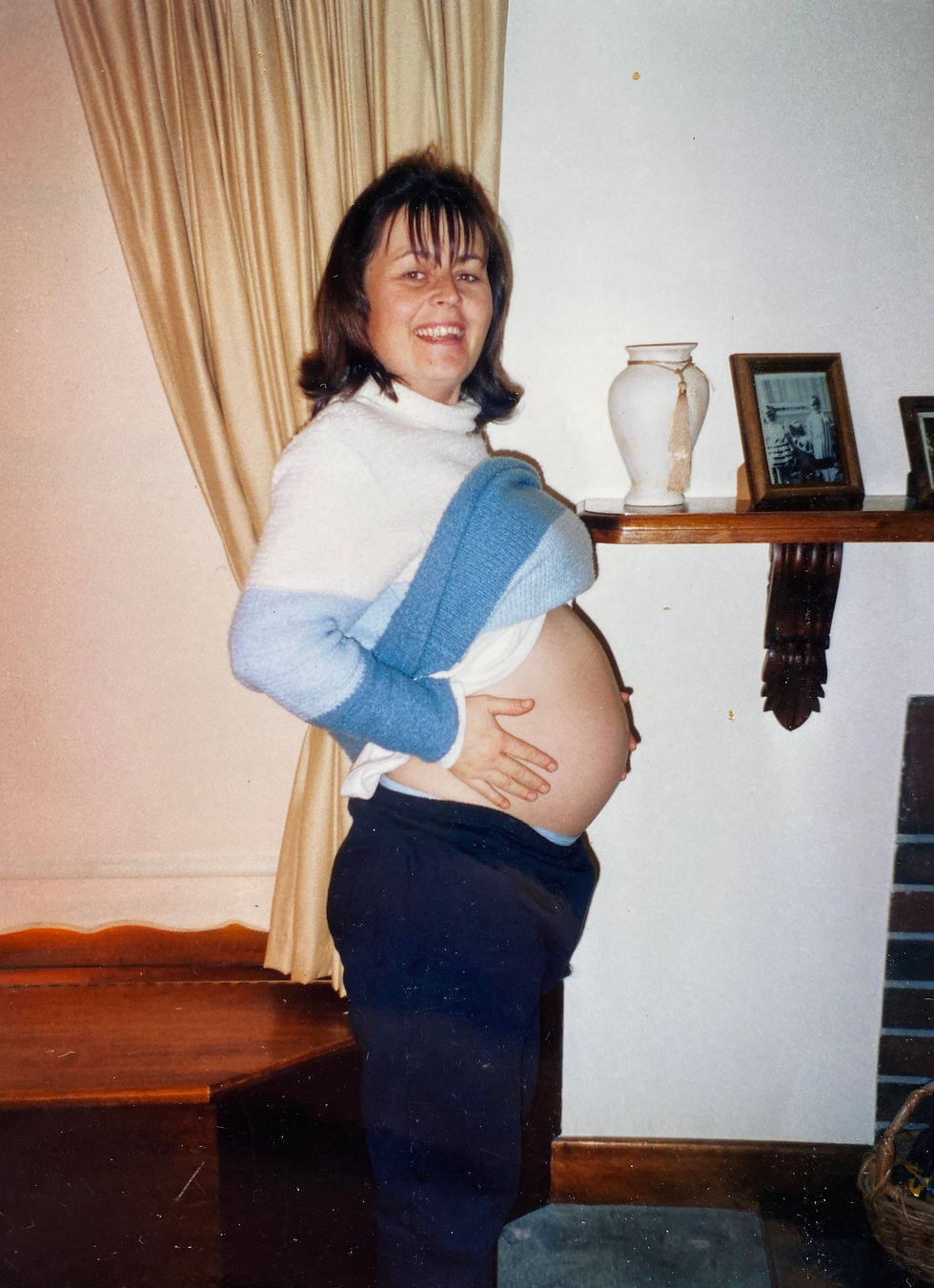
Exactly forty weeks later, Jill birthed her first daughter. Twenty-five months after that, Audrey was joined by her little sister, Laura.
Despite conceiving both girls naturally, Jill credits IVF for the pregnancies. ‘The injections’ to increase ovulation, ‘that’s what got things going’.
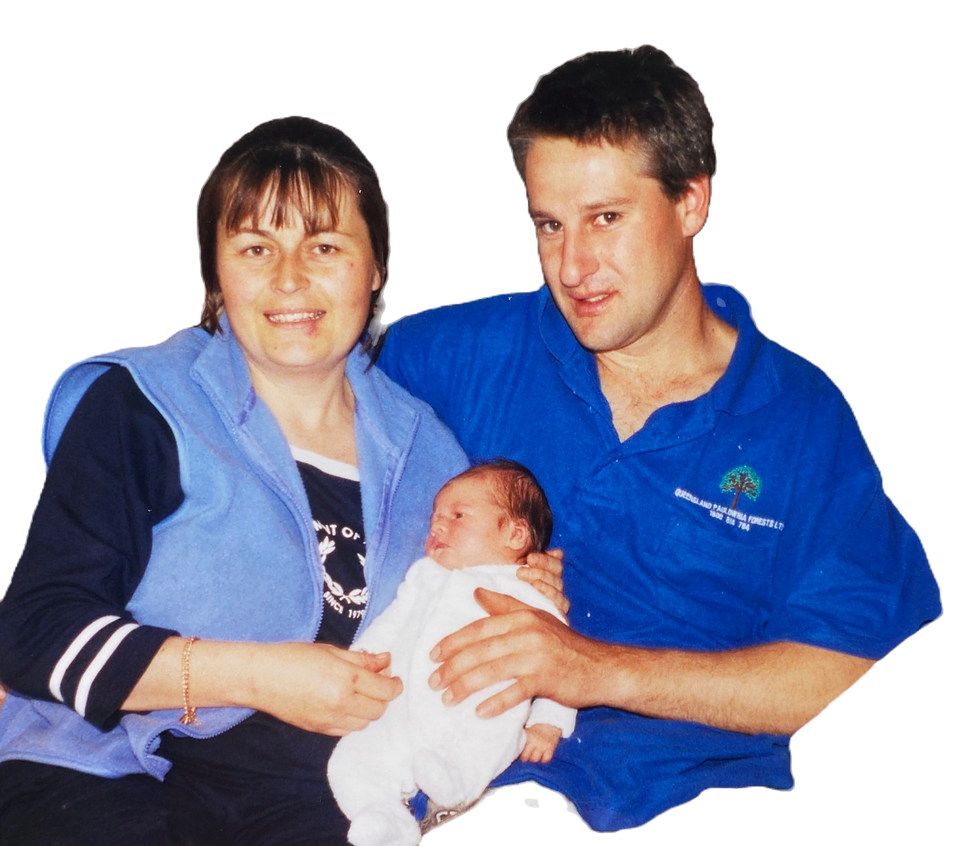
How is Everyone Else Pregnant?
By age thirty, Jill’s entire friendship circle either had babies or were pregnant. A constant reminder of what she hadn’t been able to do thus far.
‘I wanted it so badly. Everyone else around me was getting pregnant and having babies, all our friends, so that was really hard too’. Jill felt left behind in the game of life, like nobody around her could understand what she was going through.
‘You get so consumed with it, you really do. You’re looking at everyone who’s pregnant and breaking inside, especially when you’re having trouble to do it’.
The self criticism was intense for Jill, and the judgemental words of others still stick with her today. ‘A girlfriend said a really mean thing to me once on the phone, it really upset me.’ This friend of Jill’s had fallen pregnant easily at the age of twenty-six, ‘and here I am, at thirty-two, still trying’.
‘She rang me up one day telling me her sister was pregnant, who was thirty-four’. What could have been used as a glimmer of hope for Jill was quickly turned negative, with the friend retorting ‘oh my god, I cannot think of anything worse than having children in your thirties’.
Jill remembers feeling 'in shock' on the other end of the phone, thinking ‘do you realise what you’re saying to me?’. A slip of the tongue for the friend, a massive stab in the gut for Jill. ‘There was no thought’.
So what do people going through fertility issues need to hear on the other end of the phone?
Jill’s answer is simple; ’It’s just nice to listen, isn’t it?’.
‘People try and give you all their advice but it’s no good if they’ve got children, because they don’t get it.’ That ‘fear of not being able to do something’ can only be understood from experiencing the struggle itself.
‘It’s like if you lose a mother, people say ‘I’m so sad for you’, but if they’ve still got their parents then they don’t really understand what that feeling is like, do they? You don’t until you go through it. You think you do, but not really’.
What should people avoid saying? A big one for Jill is ‘I couldn’t imagine not having my children’. Jill follows by confessing that this question ‘is a hard one’. ‘I don’t think you can control (what people do or don’t say). Some are thinkers, Some aren’t’.
What to Say: | What to Avoid: |
- Just listen. | - 'I cannot think of anything worse than having children in your thirties' |
| - 'I couldn't imagine not having my children' |
| - 'Pregnancy is so easy' |
| - 'I completely understand' if you don't |
And then there are pregnancy announcements.
For a lot of people, seeing those two lines and a future before their eyes is the happiest moment of their life. They are bubbling with excitement to tell everyone around them.
What is the best way to announce a pregnancy when considering people who are struggling?
‘I don’t think it would matter. I think, personally, the person who’s dealing with the infertility is going to handle it whatever way they want to.’
Grieving and struggling are normal stages of this journey that Jill acknowledges as ‘important’. ‘It was really hard seeing people pregnant’.
‘I think just to be aware, if you’ve got someone in your circle who’s struggling with (fertility)’. Perhaps telling that friend in private, so they don’t have to experience the emotions that may arise in front of everyone. ‘You don’t want to take away from their glory’.
Children After Miscarriage
What was the first full-term pregnant like after experiencing so many misses?
‘I was so nervous’, Jill recounts. ‘So nervous, waiting for it to not happen’.
After ‘holding back’ her excitement out of fear and many blood tests and scans ‘to
reassure’ later, Jill let herself believe this pregnancy would bring her a baby- and on the 25th of September, 2003 Audrey entered the world.
‘She was so bloody beautiful, oh my god she was a beautiful baby’.

Jill admits that her experience with miscarriages shaped her to parent more cautiously; ‘I had that thought of not being a mother’.
Wanting to soak up the long awaited milestone of becoming a mum, Jill recalls sitting there ‘for hours’ with newborn Audrey thinking ‘she’s mine, I’ve finally got one’.
Sleepless nights, dirty nappies, terrible two’s and teething, ‘I just loved it’. ‘I freaking loved having babies’.
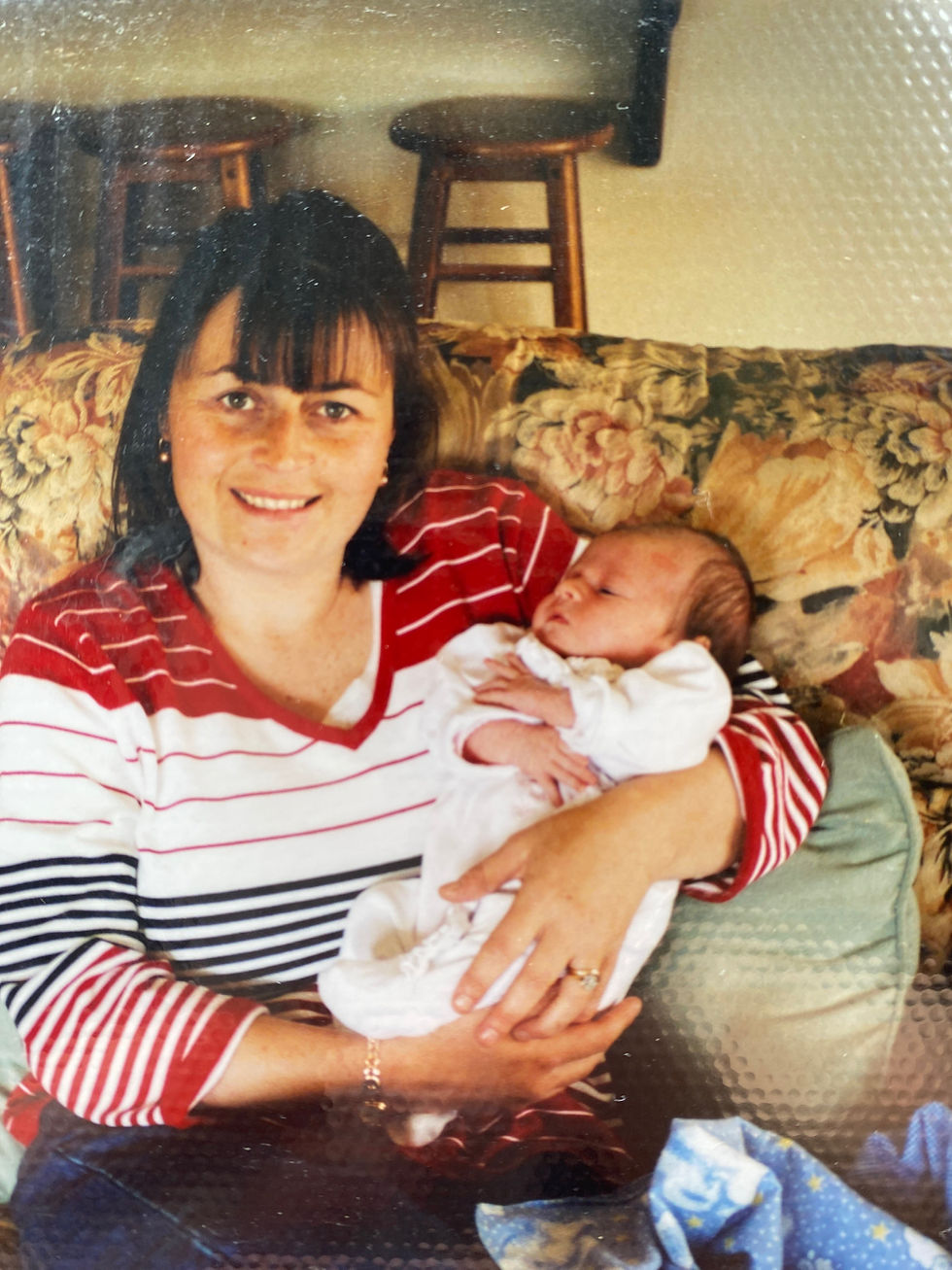
Two years later, Jill’s period was late again.
Jill went to her sister’s house to take a pregnancy test, thinking ‘I won’t be’.
‘We sat there’ waiting for the two lines to show. ‘Hmm, negative’.
Disheartened and feeling foolish for hoping, Jill was walking out the door when her sister decided to have one last look at the test. ‘Jilly! I think it’s positive!’.
‘I was just gobsmacked thinking ‘oh my god, I’m going to get to have two!’ because I never thought I would’. Having one baby felt like a miracle, 'I was pretty blown away to think that I was going to get to have two’.
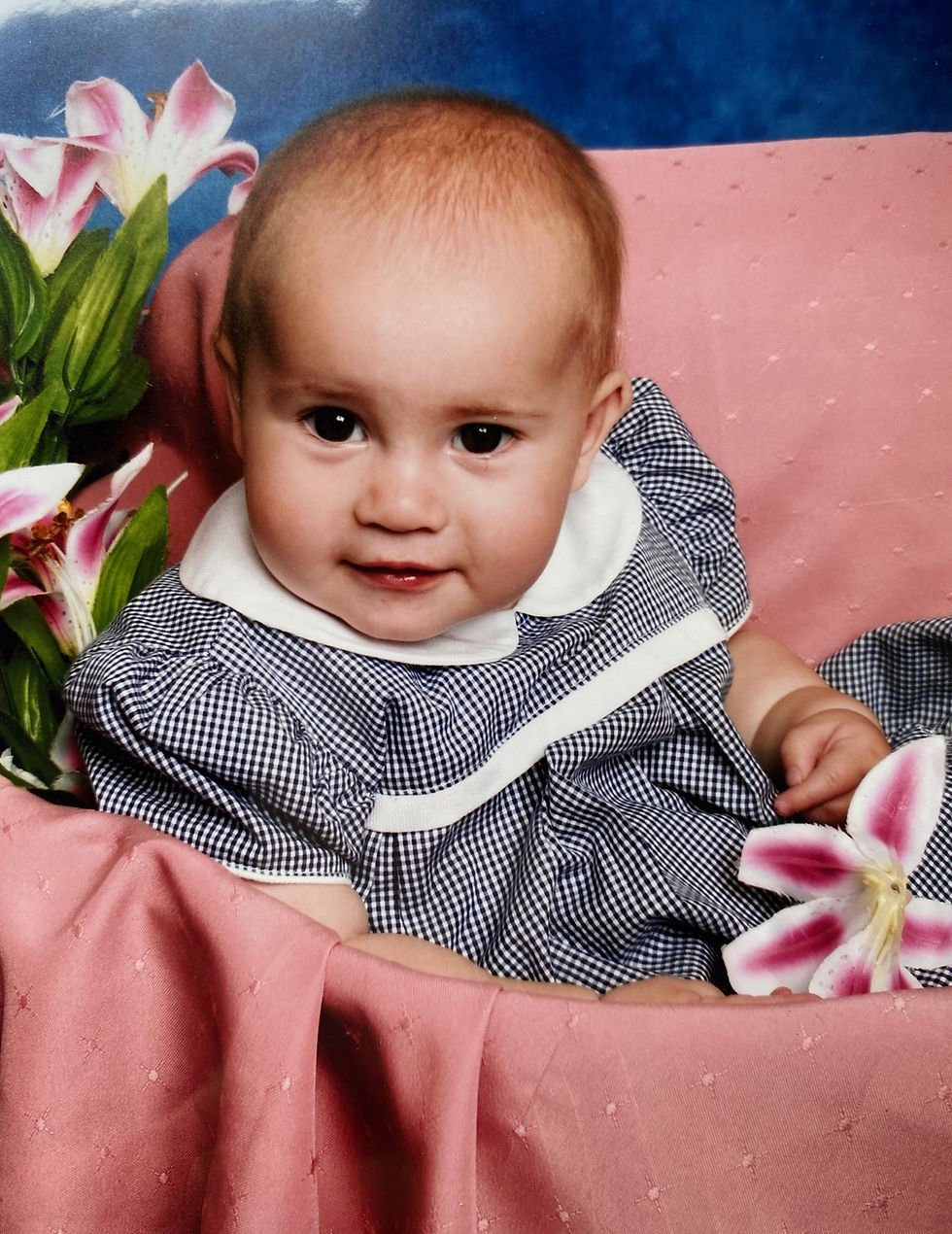
On the 2nd of August, 2006, Laura joined the clan. ‘I just loved them to death.’
‘I didn’t trust anyone with them, I used to get anxious if people would come in and want to hold my brand new baby’.
‘I didn’t like being away from them, at all’. 'I probably still don’t a bit, Ali’, Jill admits in a whisper.
‘You don’t realise just how precious it is to have children in your life, it’s just gold’. A content, smiling Jill proclaims.
‘A lot of people think they haven’t done much with life; they haven’t travelled, experienced lots of things, but I think being a mother is pretty cool.’
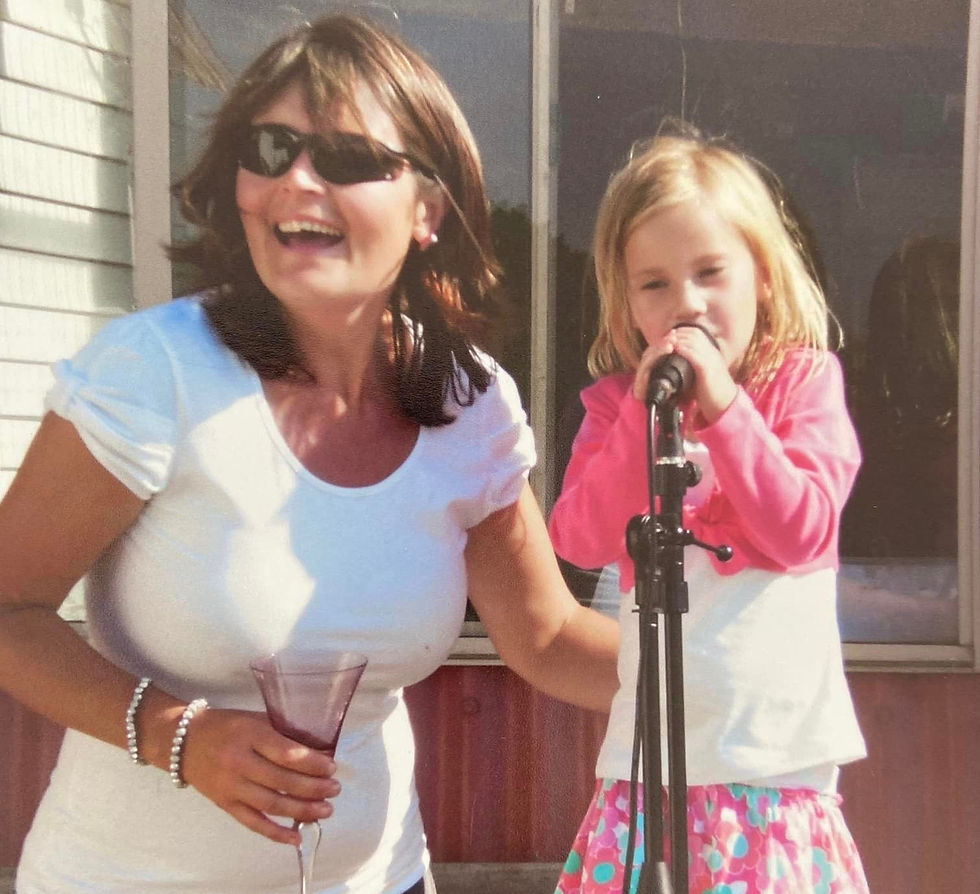
To Jill, the recipe for a life well lived includes a few ingredients;
being true to yourself
following your dreams
having a crack if you can
But most importantly;
‘If you can lay down at the end of your day and think ‘I’ve tried my best today, I’ve been kind to people’, I reckon you’re winning’.
Some people are born to be mothers, and Jill is one of them.
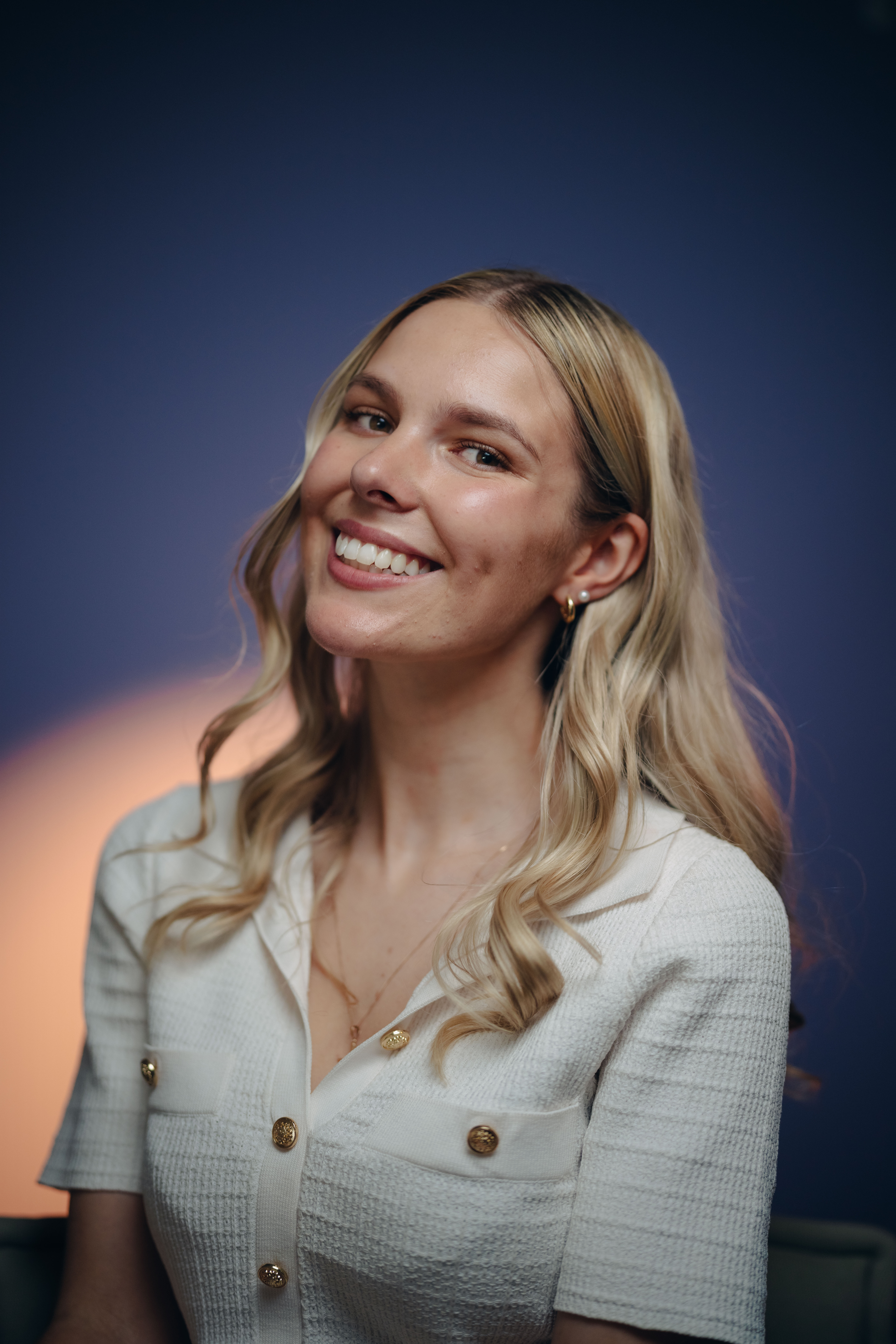



Comments